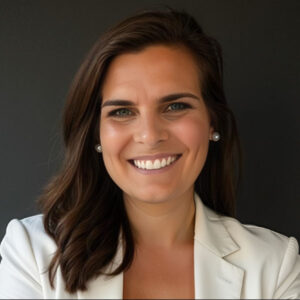Obtaining Financing

Obtaining Financing
Whether you are a small or medium size business, the process of obtaining a loan is similar.
Commercial lenders are interested in:
The purpose of the loan. With a seasonal loan, for example, the borrower is able to pay the loan back when inventories and receivables decline after a seasonal surge in business, and this pattern is typically repeated from year to year. It is generally easier to obtain than a term loan used to provide permanent working capital, so long as the increases in inventory and accounts receivable during the busy season are consistent with past experience.
Term loans, which are generally paid back from cash generated by net income, are a different story. Here you need a business plan and cash flow projections derived from realistic expectations. An example of how to develop realistic expectations of future revenue is to survey the customers to ascertain the probable orders they will place, and to evaluate them in relation to past orders, e.g., evaluate events that account for significant increases in future orders compared to the past. Taking the simplistic approach of assuming next year’s overall revenues will increase by, say, 10 percent will not do it.
Management continuity: The borrower needs to provide evidence that management strength is not dependent on one person. There must be capable management in the wings.
Lenders will also be concerned with:
1. A concentration of business with a small number of customers or a dependence on one product.
2. Large owner compensation and benefits that are unlikely to be reduced in response to a decline in business.
3. Questionable quality of accounts receivable as measured by aging and bad debts
4. Low quality of inventories as measured by turnover and obsolescence.
5. Potential need to replace equipment or upgrade it to remain competitive.
6. And of course the borrower’s integrity and past history.
In obtaining financing, there are some basic ideas you should be aware of:
1. The business activities should be separate from the personal activities of the owners. For example many entrepreneurs use their personal checking accounts for their business operations. It is incredible that business would commit such an obvious mistake. These are primarily very small businesses. But one in five do not keep these elements separate. The business should also have a distinct legal structure: a corporation or S corporation, LLC, or partnership. The choice of the business legal structure has significant risk and income tax effects.
2. There are a myriad of types of business loans. Both the lender and the CPA can be helpful in explaining them, and in guiding the borrower towards the most appropriate kind of loan for it’s circumstances.
3. CPAs can also help the borrower determine the cost of the loan, and to evaluate the implications of loan covenants such as prepayment penalties, requirements that limit owner withdrawals, and maintenance of minimum financial statement ratios such as total debt divided by net worth of the business.
Accounts receivable financing is popular with companies that do not have the financial strength to qualify for unsecured seasonal or term loans. Lenders who finance receivables (and sometimes inventories and equipment) use those assets as collateral for their loans and monitor them closely. Because the monitoring controls the amount of the loans outstanding in relation to the value of the collateral, loan covenants are sometimes not as strict.
Personal guarantees of the business owners are generally required for loans to private companies, and since the pledge of assets protects the lender, it also protects the owners. In cases where the lender, for whatever reason, does not closely monitor the collateral, it might be prudent for the company’s CPA to periodically examine the collateral to determine that its value exceeds the loan balance.
We hope you found this article about “Obtaining Financing” helpful. If you have questions or need expert tax or family office advice that’s refreshingly objective (we never sell investments), please contact us or visit our Family office page or our website at www.GROCO.com. Unfortunately, we no longer give advice to other tax professionals gratis.
To receive our free newsletter, contact us here.
Subscribe to our YouTube Channel for more updates.

Alan Olsen, is the Host of the American Dreams Show and the Managing Partner of GROCO.com. GROCO is a premier family office and tax advisory firm located in the San Francisco Bay area serving clients all over the world.
Alan L. Olsen, CPA, Wikipedia Bio

GROCO.com is a proud sponsor of The American Dreams Show.

The American Dreams show was the brainchild of Alan Olsen, CPA, MBA. It was originally created to fill a specific need; often inexperienced entrepreneurs lacked basic information about raising capital and how to successfully start a business.
Alan sincerely wanted to respond to the many requests from aspiring entrepreneurs asking for the information and introductions they needed. But he had to find a way to help in which his venture capital clients and friends would not mind.
The American Dreams show became the solution, first as a radio show and now with YouTube videos as well. Always respectful of interview guest’s time, he’s able to give access to individuals information and inspiration previously inaccessible to the first-time entrepreneurs who need it most.
They can listen to venture capitalists and successful business people explain first-hand, how they got to where they are, how to start a company, how to overcome challenges, how they see the future evolving, opportunities, work-life balance and so much more..
American Dreams discusses many topics from some of the world’s most successful individuals about their secrets to life’s success. Topics from guest have included:
Creating purpose in life / Building a foundation for their life / Solving problems / Finding fulfillment through philanthropy and service / Becoming self-reliant / Enhancing effective leadership / Balancing family and work…

MyPaths.com (Also sponsored by GROCO) provides free access to content and world-class entrepreneurs, influencers and thought leaders’ personal success stories. To help you find your path in life to true, sustainable success & happiness. It’s mission statement:
In an increasingly complex and difficult world, we hope to help you find your personal path in life and build a strong foundation by learning how others found success and happiness. True and sustainable success and happiness are different for each one of us but possible, often despite significant challenges.
Our mission at MyPaths.com is to provide resources and firsthand accounts of how others found their paths in life, so you can do the same.
Faith, Freight & “Slaying the Tomb”
How the Moscrips Drove From Freight Tech to Faith-Fueled Media When Scott Moscrip launched Truckstop.com from a spare bedroom in 1995, he didn’t just build a freight-matching marketplace—he rewired a blue-collar industry for the Internet age. Thirty years, five kids, and one mayoral term later, the Idaho technologist and his wife, Carmen, are chasing an…
From the Streets to Self-Reliance
How Joseph Grenny’s Other Side Village Is Rewriting the Homelessness Playbook A 2 a.m. Alarm and a Box of World-Class Doughnuts At two o’clock each morning in downtown Salt Lake City, former rough-sleepers slip into spotless aprons, fire up industrial mixers, and begin turning out pillowy brioche rings glazed with passion-fruit icing and drizzled…
Building a Legacy: A Fireside Chat with Martin Luther King III
In a thought-provoking fireside chat at our Legacy Builder’s Conference, Martin Luther King III shared profound insights on the concept of legacy, leadership, and the moral imperatives facing society today. Speaking with Alan Olsen, he reflected on his father’s enduring impact and his own efforts to carry forward that mission in today’s world. Defining His…
Turning Ordinary Lives into Living Legacies
“There was a measurable connection between how well they knew their family stories and how successful they were.” — Kasia Flanagan, founder of Everyday Legacies When historian‑turned‑biographer Kasia Flanagan examined the lives of mixed‑race German‑Samoan descendants for her PhD, she expected to chart migration patterns and cultural shifts. What she didn’t expect was the data point that changed her career:…




